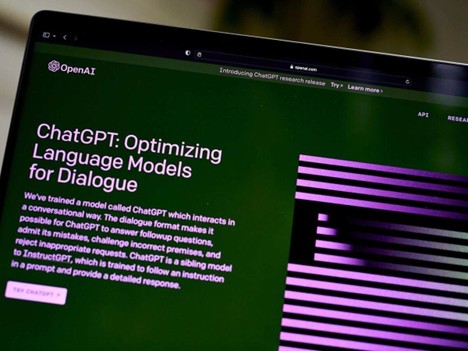Generative AI
How I Learned to Stop Worrying and Ask ChatGPT
Generative AI has brought about a significant impact on TV and movie writers, revolutionizing the way stories are created and developed. With the advancements in natural language processing and machine learning, generative AI models have become capable of generating coherent and creative narratives, characters, and dialogue. This technology has proven to be a valuable tool for writers, serving as a source of inspiration, assisting in plot development, and even providing alternative ideas. By feeding vast amounts of existing scripts and narratives into these AI models, writers can explore new storylines, experiment with different genres, and overcome writer’s block. However, while generative AI offers a wealth of possibilities, it also raises ethical questions and challenges traditional notions of authorship and creativity. Striking the right balance between human ingenuity and AI assistance is crucial in preserving the unique vision and storytelling abilities of TV and movie writers.
At least that’s what ChatGPT told me when I asked it to write about how Generative AI is impacting TV and Movie writers. You’ve probably heard about the current Writers Strike and have probably even looked at how it will affect the next season of your favorite show. One of the major issues is whether or not to allow the industry to use Generative AI in place of human writers. It’s the rare case where the logic on both sides makes sense: The rapid improvement of AI and its generative capabilities are an existential threat to the profession of writing, but conversely shouldn’t the entertainment industry be able to tap any creative source they can find? This strike may be the first test case for how society will handle Generative AI, but it won’t be the last.
As you read this Generative AI is being used across numerous applications like cybersecurity, health care, finance, art, and more. In addition to writing scripts, it can carry on conversations, draw pictures, write code, diagnose patients, and much more. It’s also not just creating fully formed content from scratch. As mentioned above it can be a partner, it can provide ideas and guidance. It can give you a starting point or push you past a writer’s block. But at what cost?

Generative AI carries inherent dangers that warrant careful consideration. One concern lies in the potential for the proliferation of deepfakes and misinformation. As AI models become increasingly proficient at generating realistic content, there is a risk of malicious actors exploiting this technology to create convincing but fabricated videos, audio recordings, or written material. Such misuse could lead to misinformation campaigns, identity theft, or damage to personal and professional reputations. Additionally, generative AI raises ethical concerns regarding intellectual property and copyright infringement. As AI systems learn from extensive datasets, they may inadvertently generate content that infringes upon existing copyrights, challenging the rights and livelihoods of artists and content creators. Therefore, responsible and ethical use of generative AI is essential to mitigate these dangers and maintain societal trust in AI technology.
Did I fool you that time? I’m guessing you suspected that ChatGPT wrote that last paragraph too. Generative AI may be very good, but it can’t match a style it hasn’t been trained on. It doesn’t sound like me or feel like me. This is a fun exercise for an article, but in the real world it’s all people like the Writers Guild of America have to hold on to. Can an AI really convey human emotion and make us as consumers feel something?